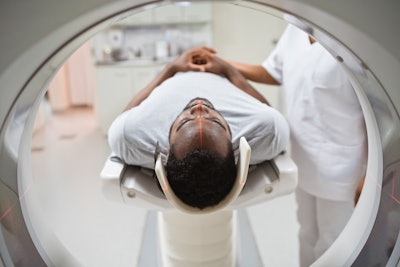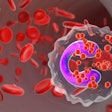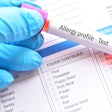
T2-weighted (T2w) MRI technology looks to be a promising tool in the diagnosis of severe asthma. Details of the imaging tool and its role in detecting the condition were revealed in the new study, “Bronchial Wall T2w MRI Signal as a New Imaging Biomarker of Severe Asthma.” The study was published in the journal, Insights Into Imaging.
The study analyzed 30 individuals with asthma (15 severe, 15 non-severe), matched by age and gender. Researchers measured mean T2 intensity MRI signal of the bronchial wall area (BrWall_T2-MIS), pulmonary function tests (PFTs), fractional exhaled nitric oxide (FeNO) and blood eosinophil counts (Eos).
Key findings from the study included:
- Higher T2w signal in severe asthma: The mean T2w MRI signal intensity of the bronchial wall (BrWall_T2-MIS) was significantly higher in patients with severe asthma (74 ± 12) compared to those with non-severe asthma (49 ± 14).
- Correlation with pulmonary function: The T2w signal showed a moderate inverse correlation with PFT parameters, such as FEV1 (% predicted) and FEV1/FVC, indicating that higher T2w signals are associated with greater airflow obstruction.
- Inflammatory markers: In severe asthma patients, the T2w signal was moderately correlated with blood eosinophil counts, a known marker of airway inflammation.
According to researchers, this method of detecting severe asthma offers several advantages, including a non-invasive and radiation-free test. Unlike CT scans, T2w MRI does not involve ionizing radiation, making it safer for long-term follow-up. It also offers near perfect high reproducibility of the T2w signal measurements, ensuring reliable and consistent results.
The clinical implications of the study suggest the new T2w MRI approach could serve as a valuable tool for distinguishing severe asthma from non-severe asthma. This imaging biomarker may help clinicians monitor disease progression and response to treatment more effectively, particularly in the era of biological therapies.
Although the study’s findings are promising, researchers suggested larger, multicenter studies should be conducted to validate the use of T2w MRI as a standard diagnostic tool for severe asthma.






















